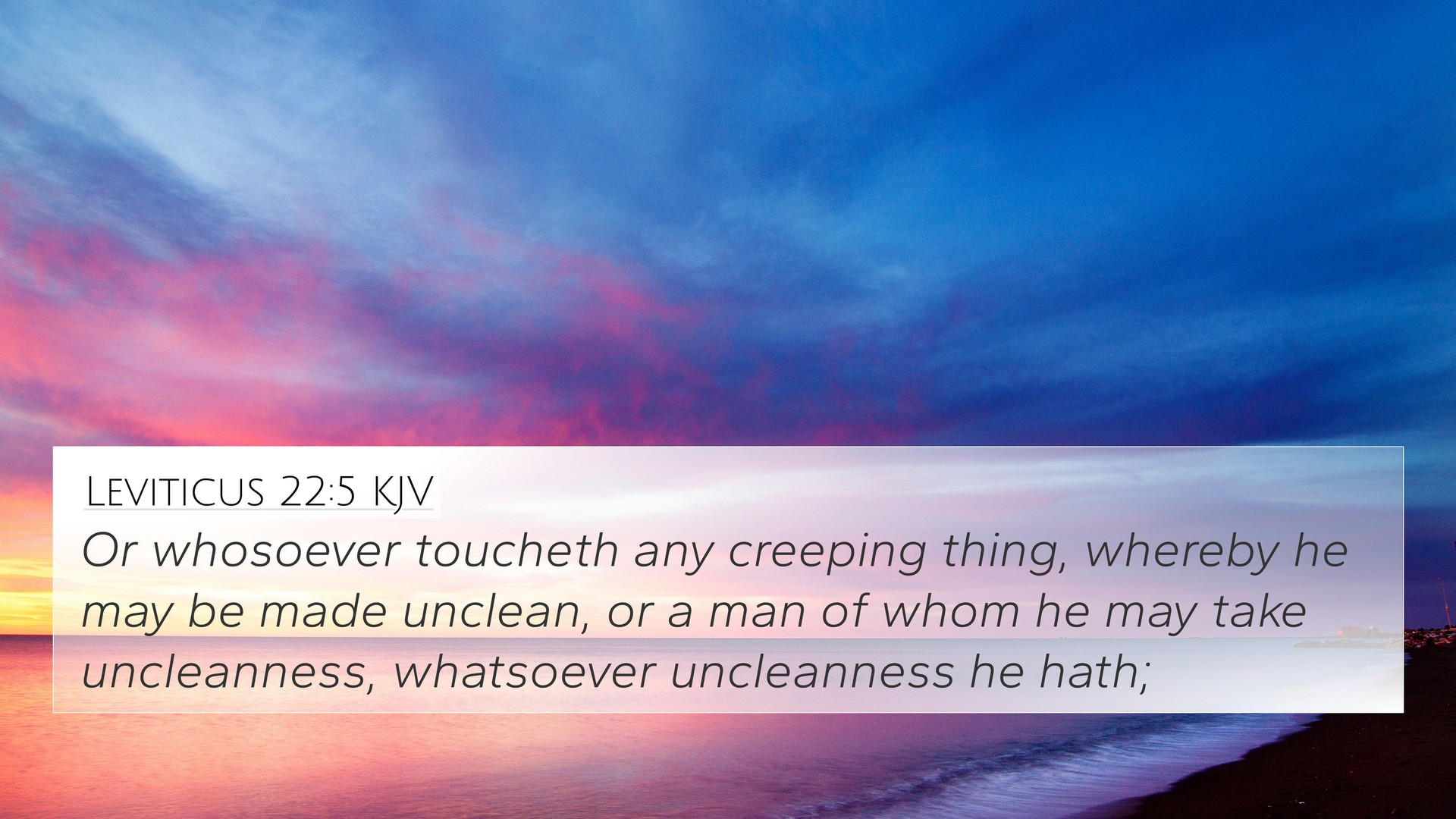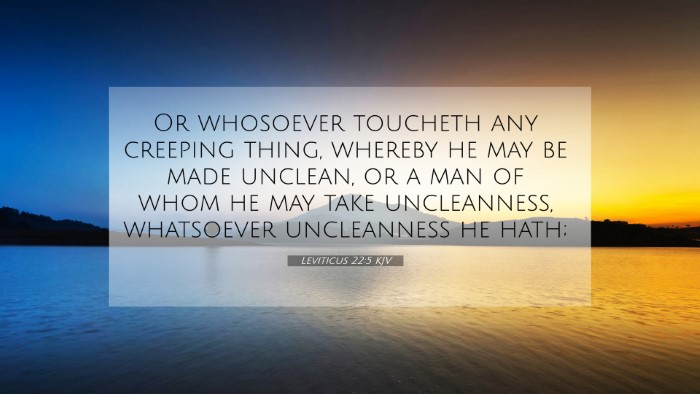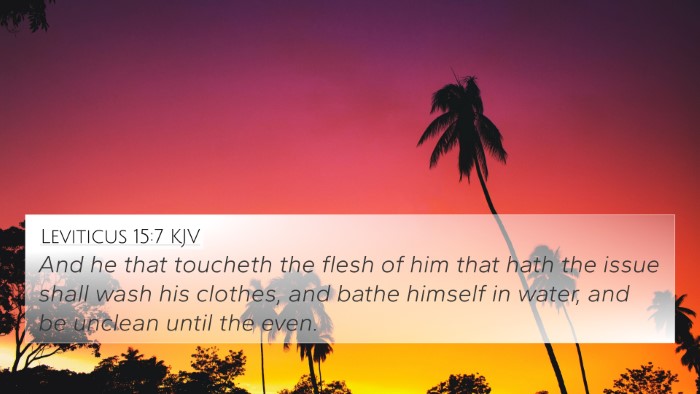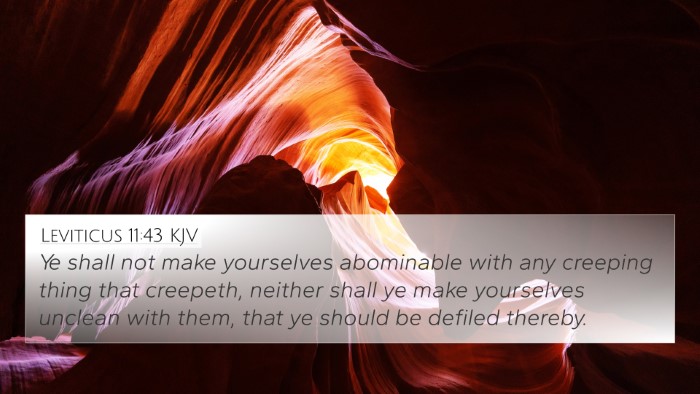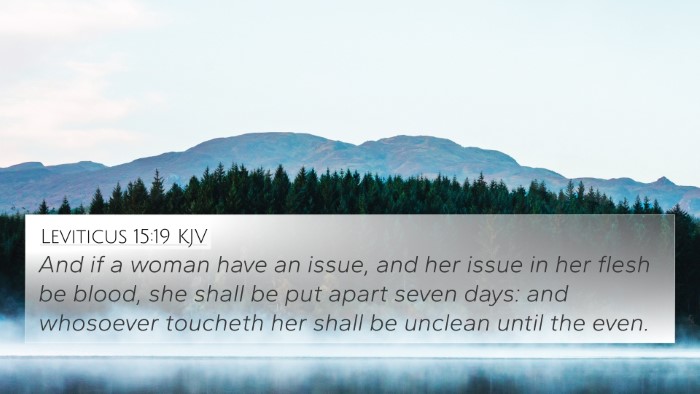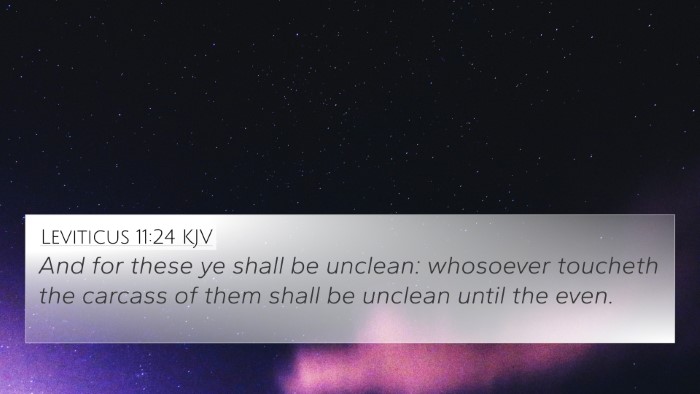Understanding Leviticus 22:5
Leviticus 22:5 states:
"Or a person who touches any unclean thing, such as the uncleanness of a man or any uncleanness of a hateful creature, and who eats of the holy offerings, that person shall be cut off from his people."
This verse underscores the importance of purity and holiness in the worship practices of the Israelites. The surrounding context in the book of Leviticus deals with the regulations given to the priests and the people regarding sacrifices and offerings to God.
Analysis and Interpretation
Public domain commentaries provide various insights into the meaning of this verse:
-
Matthew Henry's Commentary:
Henry emphasizes the significance of ritual purity and the severe consequences of defilement. He notes that the holiness required to partake of sacred offerings is not merely about external actions but also about spiritual integrity. The phrase "cut off" implies serious repercussions, showcasing God's seriousness about holiness.
-
Albert Barnes' Notes:
Barnes expands on the concept of "unclean things," indicating that these include not just physical impurities but also moral and spiritual ones. He connects this with the broader theme of the covenant relationship between God and Israel, highlighting that such a relationship requires that the people maintain cleanliness and holiness.
-
Adam Clarke's Commentary:
Clarke provides a deeper look at the implications of the term "cut off," suggesting that it may refer to exclusion from the community or even divine judgment. He stresses the necessity of being mindful of one's actions and their implications on spiritual standing with God.
Bible Cross-References
Leviticus 22:5 connects with several other biblical texts that elaborate on the themes of purity and holiness:
- Leviticus 11:44-45: Calls for the people to be holy as God is holy.
- Exodus 30:33: Highlights the seriousness of anointing oil and sanctity.
- Hebrews 12:14: Commands to pursue holiness, without which no one will see the Lord.
- 1 Peter 1:16: Quotes Leviticus, emphasizing the mandate to be holy.
- Numbers 19:22: Discusses the implications of touching the unclean and its effects on others.
- Ephesians 5:27: Talks about presenting the church as holy and without blemish.
- 2 Corinthians 6:17: Urges believers to come out from unclean and be separate.
- Matthew 5:8: Pronounces blessings on the pure in heart.
- Psalm 24:3-4: Speaks of who may stand in the holy place, emphasizing clean hands and a pure heart.
- Isaiah 52:11: Calls for the people to depart, touching no unclean thing, emphasizing separation from defilement.
Thematic Connections
The themes in Leviticus 22:5 resonate throughout both the Old and New Testaments. Holiness is a continuous thread, tied intimately to God's character and the relationship He has with His people. Understanding these themes can deepen one's insight into scriptures and enhance study methods such as:
-
Cross-Referencing Bible Study:
By exploring related verses, one can see how Leviticus 22:5 fits into the larger narrative of Scripture and God's expectations of His people.
-
Bible Concordance Tools:
Utilizing these tools can help identify keywords and phrases tied to purity, holiness, and God's commands, making it easier to find cross-references.
-
Comparative Bible Verse Analysis:
Engaging in a comparative analysis can reveal differences in the application of holiness themes across different contexts, such as the Old Testament requirements versus New Testament interpretations.
Conclusion
In summary, Leviticus 22:5 serves as an essential verse that highlights the Israelites' need for purity when approaching God and partaking in holy matters. The commentaries provide rich insights that encourage believers to reflect on their own practices and spiritual cleanliness, making necessary connections both within the text and across the broader biblical narrative. The use of cross-references enhances understanding, revealing the depth and continuity of scriptural themes.
